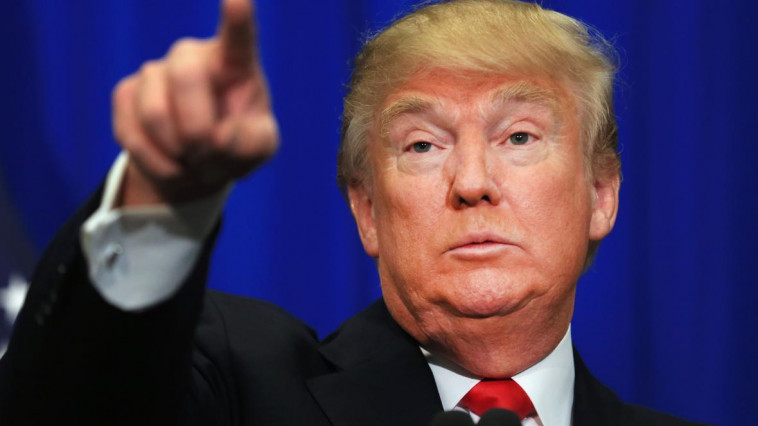Financial Times: US intelligence chiefs reject Trump doubts on Russian hacking

Leaders of the US intelligence community have forcefully rejected Donald Trump’s dismissal of their findings that Russia interfered in the presidential election, setting up a showdown between America’s top spies and the President-elect two weeks before his inauguration, informs Financial Times.
James Clapper, the director of national intelligence, told a Senate committee hearing on Thursday that US intelligence agencies were more “resolute” in their conclusion that Russia’s President Vladimir Putin ordered pre-election hacks of Democratic party servers than they had been in October when they first indicated Russian involvement.
Senator John McCain, the armed services committee’s Republican chairman, joined Mr Clapper and two other leading US intelligence officials in blaming the Kremlin for the pre-election cyber attacks. He described them as an “unprecedented attack on our democracy”.
“Every American should be alarmed by Russia’s attack on our nation,” Mr McCain said, as he called for a new US strategy to deter future cyber attacks.
Mr Trump has scoffed at the intelligence community’s finding that the Russian government directed last year’s attacks on Democratic party computers and this week embraced WikiLeaks leader Julian Assange’s statement that the hacks could have been carried out by a “14-year-old”. The president-elect’s stance has left him at odds with senior members of his party, including Mr McCain.
“I simply state what [Mr Assange] states, it is for the people to make up their own minds as to the truth,” Mr Trump wrote on Twitter on Thursday.
After the hearing, he added: “The Democratic National Committee would not allow the FBI to study or see its computer info after it was supposedly hacked by Russia... So how and why are they so sure about hacking if they never even requested an examination of the computer servers? What is going on?”
The release of internal Democratic emails by WikiLeaks, a radical transparency group, hamstrung the presidential campaign of Democratic rival Hillary Clinton in its final weeks.
Mr Clapper and Admiral Michael Rogers, head of the National Security Agency, suggested Mr Trump was making a mistake listening to Mr Assange. Mr Clapper said earlier that WikiLeaks’ disclosures of classified government documents had led to American deaths.
Alluding to Mr Trump’s gibes about US intelligence, Mr Clapper, a 53-year veteran of the intelligence community who is leaving government later this month, said there was a difference between “scepticism and disparagement”.
One Republican lawmaker addressed Mr Trump directly about the need to listen to US intelligence officials. “Putin’s up to no good and he’d better be stopped,” said Senator Lindsey Graham, a frequent Trump critic.
“And Mr President-elect, when you listen to these people you can be sceptical, but understand they’re the best among us and they’re trying to protect us.”
President Barack Obama has ordered a review of the intelligence on the Russian cyber campaign, which is to be released publicly in unclassified form next week. Mr Clapper said the report would describe multiple motivations behind the hacks. He added that the cyber attacks were just one element in a multi-part Russian campaign, which included traditional propaganda, disinformation and “fake news”.
“The Russians have a long history of interfering in elections — theirs and other people’s,” Mr Clapper said.
Mr Trump’s dismissal of the intelligence findings risks damaging morale among those working for agencies such as the Central Intelligence Agency and NSA, the officials said.
“I don’t want a situation where our workforce decides to walk because that’s just not a good place for us to be,” said Adm Rogers.
The Russian attacks were just “one part of a much bigger cyber problem,” Mr McCain said, citing other Russian hacks against US government targets; China’s alleged theft of 20m personnel records from the Office of Personnel Management; and alleged Iranian probes of US Navy computers.
“What seems clear is that our adversaries have reached a common conclusion: the reward for attacking US cyber space outweighs the risk,” Mr McCain said. He blamed the growing attacks on what he labelled the Obama administration’s policy of “indecision and inaction”.
Source: Financial Times














